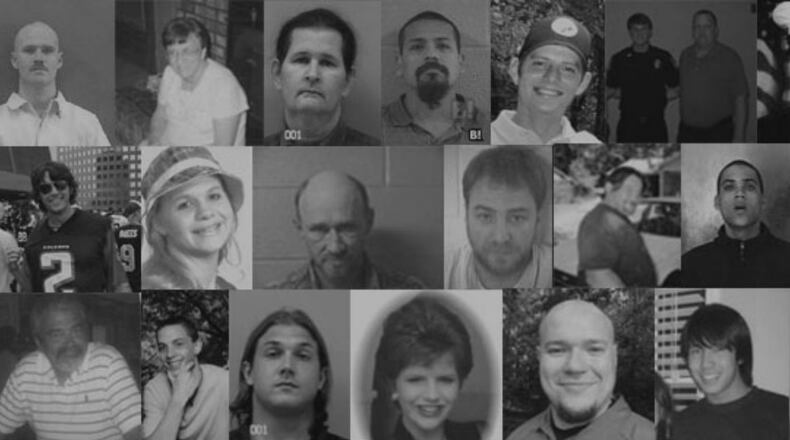A 19-year-old shot in the back. A 35-year-old unarmed mother shot through the windshield of her car. More than 50 Georgians shot at their own or family member's home.
These are just three of the stories that have emerged from The Atlanta Journal-Constitution's year-long examination of police shootings in Georgia, done in collaboration with Channel 2 Action News: "Over the Line."
Their work was recently named a finalist for the Atlanta Press Club's 2015 Awards of Excellence.
Click here and you can read the stories in full and explore the cases in our exclusive online database of police shootings in Georgia since 2010 — the only comprehensive compilation of such shootings in the state.
At the beginning of 2015, no one in Georgia could say how many people were killed by police each year. Reporters from the AJC and Channel 2 Action News set out to answer that question, and learn who, how and why civilians are killed by police, and how the legal system treats these cases.
Reporters compiled six years of fatal police shooting cases from the Georgia Bureau of Investigation and police departments throughout the state to assemble the most comprehensive database of shooting cases ever assembled in Georgia.
Because the investigation examined six years of data, the reporters were able to track the judicial outcome of closed cases. Reporters requested grand jury records and case outcomes from the district Attorneys across Georgia’s 49 judicial circuits. In all, reporters conducted more than 100 interviews, obtained more than 500 public records and analyzed thousands of pages of incident reports, investigative files, court records, autopsy records, media reports and police officer certification records.
Frank Rotondo, executive director of the Georgia Association of Chiefs of Police, called the AJC/Channel 2 data “alarming,” but said it will help encourage police agencies to become more transparent about police shootings.
"We already recognize there is a problem," Rotondo said in December. "We are not blind to the idea that there is a problem in our country. And we are not blind to the idea that we have a lot of shootings that occur in Georgia."
